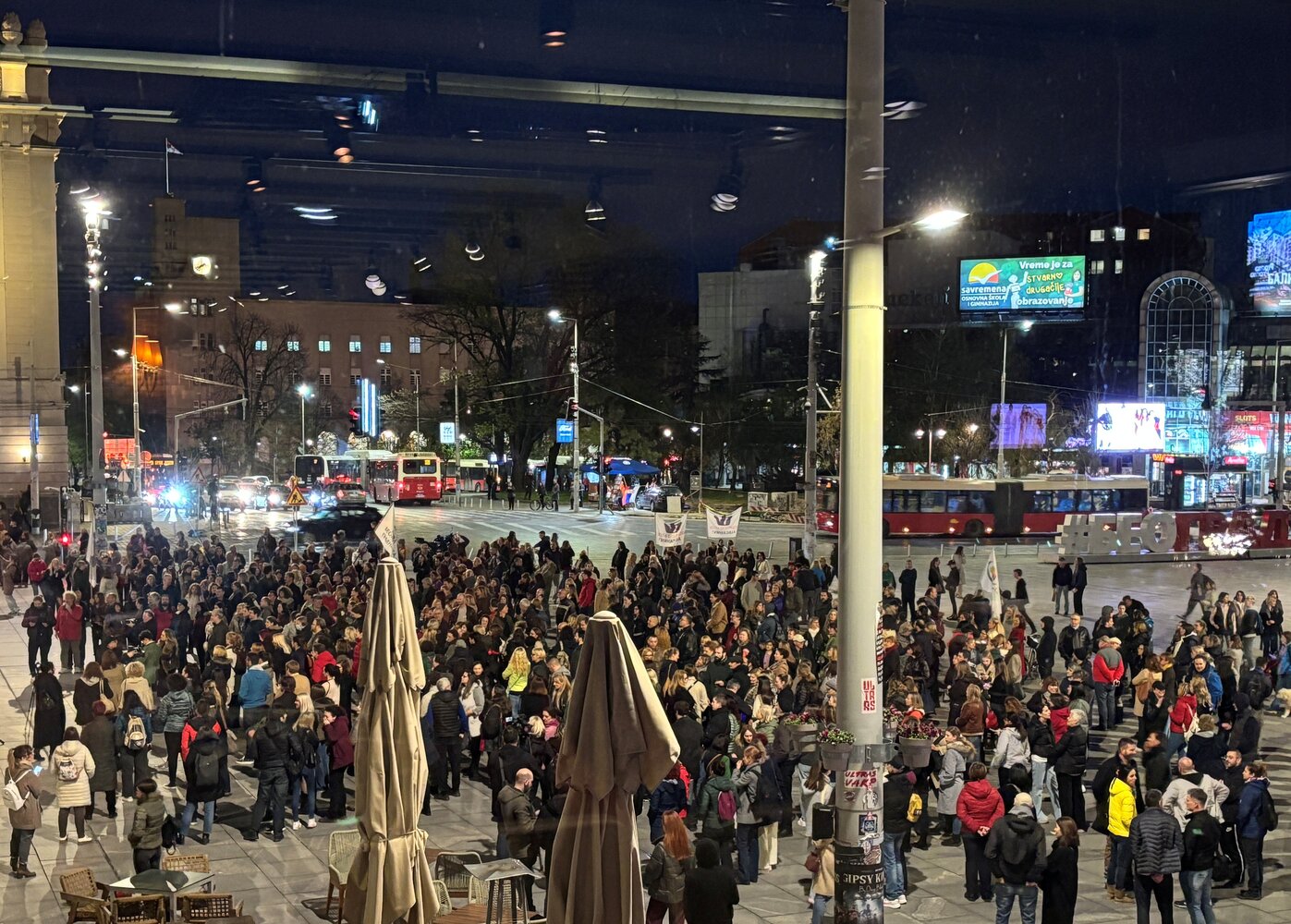Serbia's musical life under pressure
Protests against Aleksandar Vučić's government have been taking place since November 2024. The weekly, sometimes daily protests continue unabated and the situation is devastating for the cultural life of the Balkan country.

The current flood of news from the US is so overwhelming that it is overshadowing almost everything else. In view of the current tariff war, even the war in Ukraine has faded into the background. It is therefore understandable that the political events in Serbia have also received relatively little attention. The Western media did report on the deaths of several people in the collapse of the renovated railroad station in Novi Sad last November, which led to massive protests against corruption in the government. After that, however, Serbia disappeared from the front pages and only reappeared occasionally, for example when the prime minister resigned at the beginning of the year or when the government allegedly used a kind of "sound cannon" (as described by the NZZ) against its own population. However, the protests continue unabated and are now having a devastating effect on the country's cultural life.
Protests at the universities ...
In fact, it was students from the Faculty of Dramatic Arts in Belgrade who got the ball rolling after the protests in Novi Sad. When they protested in front of their faculty, they were attacked by provocateurs. The students then began a blockade of their buildings, which soon spread to all higher education institutions, including the Faculty of Music in Belgrade. Since then, there have been no classes or exams at most institutes; the academic year may have to be canceled altogether. In order to prevent individuals from being targeted, the General Assembly of Students is making joint decisions on the blockades and protests by means of direct democracy.
... theaters and orchestras
Members of the Belgrade Philharmonic Orchestra joined the street protests early on, but a car crashed into them, sending four of them to hospital. (The latest news from Belgrade is that three of them have since recovered, while the fourth is still recovering from his injuries).
At the beginning of March, before the protests on the 15th, when over a quarter of a million people demonstrated on the streets of Belgrade, theaters and orchestras also went on strike. In addition to the current political malaise, artists are also complaining about inadequate working conditions and poor pay. The Belgrade Philharmonic Orchestra has been working under interim management for over three years and, according to its own figures, its members earn around 660 euros a month, which is below the national average. Judging by my recent visit to Belgrade supermarkets, while baked goods are still relatively cheap, staples such as coffee and milk now cost as much as in Switzerland. According to my contacts, families often rely on their relatives in the countryside to deliver cheap food.
State blackmail
The strikers' demands were not met, but Serbia's musicians have since returned to their jobs out of sheer economic necessity. However, the financial situation continues to deteriorate. The lecturers at the University of the Arts in Belgrade are unable to enter their buildings because of the blockade, but my conversations on the ground leave no doubt that most of them feel solidarity with the students. But the authorities are also aware of this and have cut salaries accordingly. The paycheck in March for some professors in the music faculty was 230 dinars - about two euros, enough to buy two liters of milk.
The stalemate continues. At the time of writing, President Vučić has just appointed a new government - but the protests continue. Like everywhere else in the world, fake news is making matters worse. For example, strange websites of dubious origin have popped up calling academics and other protesters "eco-terrorists". Every evening at 7.30pm, cars honk their horns in Belgrade - a form of protest that I am told dates back to the Milošević era. And regular night-time protests continue to take place on Republic Square in front of the National Theater.
Training shortage in a music-loving country
The long-term consequences of all this could be devastating. The Music Faculty of the University of Arts - still blocked - is of crucial importance for Serbia's musical life. According to its website, "more than 90 percent of the members of all major ensembles in the country" are its graduates. I can well believe that. A few days after watching a protest by high school students and their parents against the government on Republic Square, I attended a performance of Tosca in the National Theatre opposite, where almost everyone on the cast list had studied in Belgrade (and presumably most of the orchestra members too). The artists' strike did not dampen the local audience's enthusiasm for music. Tosca was performed to a sold-out audience, and even a less popular repertoire can draw a crowd. A concert by jazz composer Giovanni Di Domenico at Radio Belgrade just a few days earlier was also sold out, with several interested parties having to be turned away due to lack of space.
Serbia's cultural significance is far greater than one would expect from an economically depressed country with just over six million inhabitants. You only have to look through a few concert or opera programs here in Central Europe to realize how many singers and instrumentalists are of Serbian origin. But a country whose universities do not function has no future. The most talented of the younger generation - those who can afford it - are now looking abroad for opportunities to study. This is bad news for the future of Serbian music institutions.








